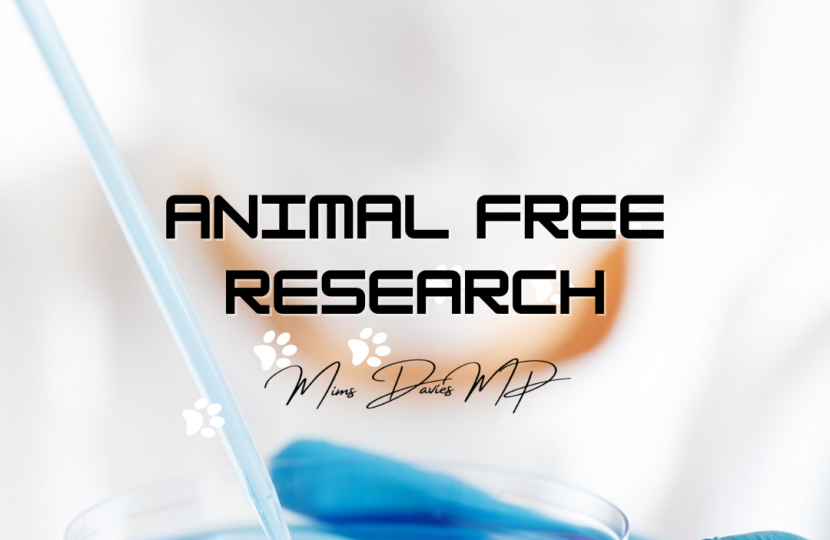
We are a nation of animal lovers, and animal welfare has been a key priority since my election to parliament so I completely understand that the use of animals in science, including toxicity testing, is a sensitive issue.
As such, I am proud the UK is one of the world's leading nations in the development of non-animal methods. I am keen to ensure that these are utilised wherever is possible and I will support work which aims to accelerate the point at which animal research and testing is no longer necessary, having been fully replaced by effective alternatives. Sadly, however, technology is not yet at a point to wholly replace animal testing for important applications tackling some of the most significant human health conditions.
Therefore, I understand the current approach to support and accelerate advances in biomedical science and technology to reduce reliance on the use of animals in research. To achieve this, funding has been used to support the development and dissemination of the three Rs which aim to replace the use of animals not necessary for research; to reduce the use of animals in the meantime; and to refine to eliminate or reduce distress to those animals already involved.
This is primarily delivered through the National Centre for 3Rs (the NC3Rs) which works, nationally and internationally, to drive the uptake of non-animal technologies, and through research into the development of alternatives by Innovate UK, the Medical Research Council, and the Biotechnology and Biological Sciences Research Council. Since it was established, the NC3Rs has invested £89.3 million in research and £27 million in contracts through its CRACK IT Challenges innovation scheme for UK and EU based institutions, with that funding mainly focused on approaches for safer assessment of pharmaceuticals. It was most welcome that, in February 2024, the previous Conservative Minister responsible announced that investment to the NC3Rs was to double from £10 million per year to £20 million per year. It is to be hoped that the new Government will sustain this level of funding.
The Home Office licences programmes of work using animals in science, including testing to satisfy regulatory requirements set out in legislation. I understand establishments must only conduct work for limited permissible purposes, according to the terms of their licences, which the Home Office assures through audit and inspection processes.
As you may know, the former Government took decisive action by banning cosmetic testing on animals. I understand that, since the ban of 17 May 2023, no animal testing is being conducted, nor will any testing be authorised, of chemicals that are exclusively intended to be used as ingredients in cosmetics products.
In February 2024, the Conservative Government announced its intention to publish a plan to accelerate the development, validation and uptake of technologies and methods to reduce the reliance of animals in science which I welcomed. I strongly advocate for these methods and believe they will greatly improve our animal welfare standards, the economy and the safety of chemical products in the UK. Such technologies have the potential to reduce the reliance on the use of animals, improve the efficiency of drug research and development, and deliver safer, cheaper and more effective medicines to patients.
I hope the new Labour Government honours this commitment. I will, of course, continue to follow developments on this issue closely.




